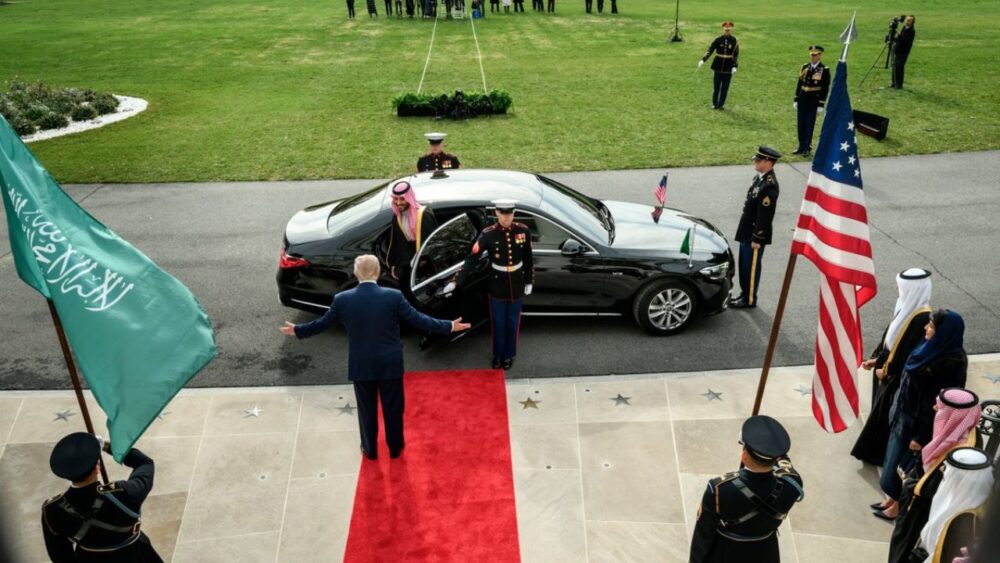President Donald Trump and Saudi Crown Prince Mohammed bin Salman finalized landmark agreements Tuesday that dramatically expand the U.S.-Saudi strategic partnership. The deals include nearly $1 trillion in Saudi investment commitments to the United States.
The agreements mark a significant escalation of economic and defense ties between Washington and Riyadh. They encompass nuclear energy cooperation, critical minerals, artificial intelligence, and major arms sales.
The investment pledge represents a substantial increase from the $600 billion Saudi Arabia committed during Trump’s May visit to Riyadh. The expanded partnership includes a Civil Nuclear Cooperation Agreement and an AI Memorandum of Understanding.
“These agreements build directly on the President’s highly successful May visit to Riyadh and the $600 billion in Saudi investment commitments secured for the United States at that time,” according to the White House fact sheet.
The nuclear deal establishes the legal framework for a multi-billion-dollar energy partnership lasting decades. It confirms American companies will be Saudi Arabia’s “civil nuclear cooperation partners of choice.”
A Critical Minerals Framework agreement aims to diversify supply chains for essential minerals. The AI memorandum gives Saudi Arabia access to American technology systems while protecting U.S. innovations from foreign influence.
On the defense front, Trump and Mohammed bin Salman signed the U.S.-Saudi Strategic Defense Agreement. The historic pact strengthens an 80-year military partnership and includes provisions on burden-sharing.
Trump approved a major defense package, including future deliveries of F-35 fighter jets. Saudi Arabia also agreed to purchase nearly 300 American tanks, supporting U.S. defense industry jobs.
The agreements facilitate easier operations for American defense firms in Saudi Arabia. They position the United States as the Kingdom’s primary strategic partner while requiring Saudi Arabia to contribute more to regional security costs.
Trade barriers will be reduced through new agreements on motor vehicle safety standards and investment regulations. The Treasury Department and the Saudi Ministry of Finance signed collaboration agreements on capital markets technology and standards.
The White House emphasized the deals reflect an “America First” approach to foreign policy. Officials highlighted the potential for job creation and the benefits to American workers and businesses from supply chain security.


